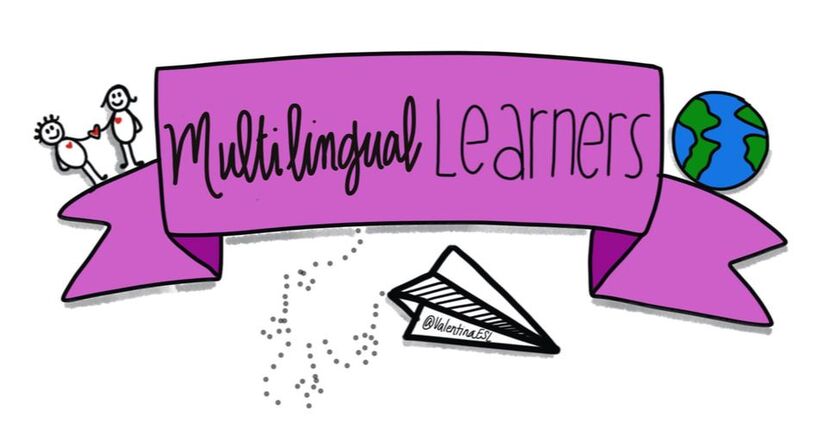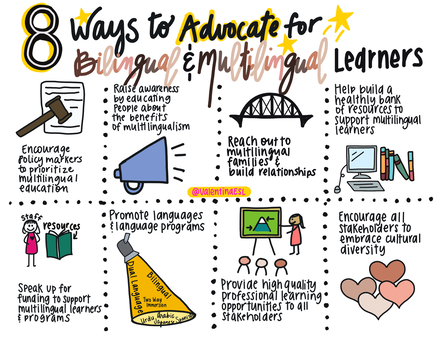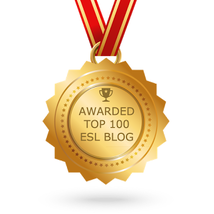|
What is advocacy? Am I doing it? Many educators find themselves asking these questions. Advocacy sometimes sounds big and scary and many educators think they can’t do it. But actually, advocacy is incorporated in daily actions sometimes big and other times small. Advocacy encompasses increasing awareness about multilingual education, initiating change for multilingual education, educating colleagues and others about multilingual education, supporting and defending multilingual education, taking action to create change in an effort to increase success for multilingual learners and their families, and more. Educators reading this are likely advocates for MLs (multilingual learners). You might be an advocate for MLs if you… 1. encourage policymakers to prioritize bilingual/multilingual education. Policymaker is a broad term. Many stakeholders are included in this definition. You can influence people at the local, state, and federal levels to lift the value of bilingual/multilingual education: students, caregivers, teachers, administrators, school board members, and members of state and federal government. 2. raise awareness by educating people about the benefits of bilingual/multilingualism. Speak publicly and post on social media to share the importance and value of bilingual education and of languages. 3. reach out to bilingual/multilingual families and build bridges between home and school. Create a supportive and inclusive environment for MLs and their families by developing relationships with and among them. 4. help to build a healthy bank of resources to support bilingual/multilingual learners. Work to find and bring in relevant, culturally inclusive, and research-based materials, books, and software. 5. speak up for funding to support bilingual/multilingual learners and programs. Advocate for money to support the needs of MLs including more staff and programming. 6. promote languages and language programs. Bilingual education is a research-proven approach to serving and supporting multilingual learners. 7. provide high-quality professional learning opportunities to all stakeholders. Train all who work with multilingual learners in the best strategies to support them with language and content instruction. 8. encourage all stakeholders to embrace cultural diversity. Foster cultural understanding and respect for all people by including families, posting languages on the school walls, providing books and materials in languages families speak, and inviting and embracing all learners from an asset-based perspective. Advocacy for MLs is vital to their success. When we advocate we help to provide equity and access to multilingual learners and their families. In many cases, MLs and their families feel pushed aside or marginalized. Many feel they are left out of important decisions in school making it harder to achieve success. For these reasons, advocacy benefits MLs. When we help to center MLs and multilingual programs, we provide these learners with what they need to achieve success.  Resources: Join the Advocating for ELLs Facebook Group: https://www.facebook.com/groups/AdvocatingforELLs/ https://www.nea.org/professional-excellence/student-engagement/tools-tips/advocacy-english-language-learners Comments are closed.
|
Categories
All
|


 RSS Feed
RSS Feed
